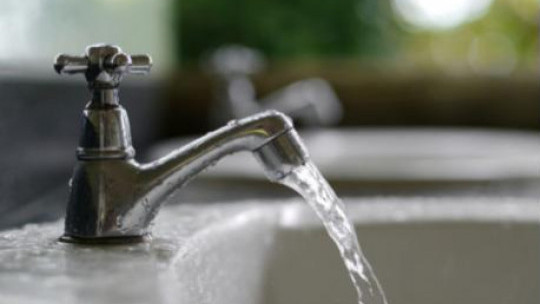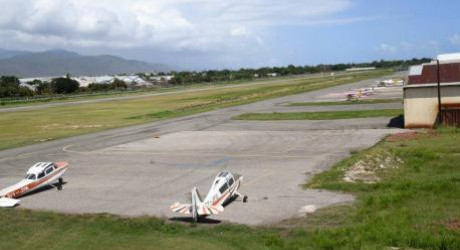.png)
By Giovanni Dennis
Last week, the 28th Global Climate Change Conference - COP28 - ended with many pledges and announcements.
But countries like Jamaica continue to feel the effects of climate change firsthand.
One group specifically impacted in a way not often discussed is women.
For Julene, running water has been scarce in the last decade, especially at her previous apartment, in Kingston.
“We would have lock-offs daily, so they would lock off the water like at 10:30 and we would get back water 5:30 in the morning, and this is every day.”
It was frustrating.
“You come home from a long day and pretty much you’re trying to catch the water before they turn it off. So you know you want to shower, you want to do certain things before the water turns off. So it was inconvenient for me because you had to be pretty much planning your life around the lock-off.”
Those 'certain things' Julene mentions, include the need for water during her monthly menstrual cycle.
Consider that the average household stores three to four gallons of water.
“Four gallons of water is great if all you’re doing is cooking and you need to drink water. However, when period gets involved, now you have to wash your hands, now you have to change your menstrual products, sometimes clean your menstrual products, and so the need for water is increased,” said Shelly-Ann Weeks, who is Executive Director of HerFlow Foundation - a charity that has donated more than seven million menstrual products to women in prisons, clinics and schools.
The organisation has estimated that 44 per cent of girls in Jamaica are affected by period poverty, a problem made worse by water lock offs.
The government reported that 2022 into 2023 was the driest in Jamaica's history.
The lack of water from drought is uncomfortable for menstruating women as is but it's overwhelming for young mothers like Anthonette, who have newborns.
“We’ve had to visit other family members to fill vessels and get water to take back home. It is especially concerning because I am a young mother. I have a small child who will very often need to be washed.”
Unplanned trips to other relatives for water means unplanned petrol use and sometimes, Anthonette has to buy extra drinking water.
Aside from the inconvenience, Shelly-Ann Weeks says it gets costly.
“Sometimes, it’s just one unplanned expense that throws off your entire budget for the month. You’re at home, you have food in the house, you don’t have any water or you have one gallon of water left,” she explained.
And this can contribute to period poverty.
This is, in part, the lack of access to safe and hygienic menstrual products and facilities, including water, during monthly periods, according to the US National Institute of Health.
“Your kids coming home from school, you have to prepare something to eat but you’re having a heavy period day and you don’t have any products. You have to deal with all the mess and the discomfort of what that entails and you have water that you have to prioritise. Unless you are the one who has to decide if you should drink the water or use it to clean up yourself, it’s something that doesn’t even occur to you.”
The absence of running water in drier sections of Jamaica is chronic.
A 2001 water resource assessment in Jamaica noted "much water is wasted due to acute irrigation inefficiencies." twenty-two years later, that remains the case.
So water scarcity in some instances, cannot be squarely blamed on climate change.
But it adds to an already fiercely scorching problem.
Globally, the world bank says half a billion menstruating women and girls are affected by period poverty.
But the impact is more severe in small island developing states like Jamaica.




.jpg)




 All feeds
All feeds







